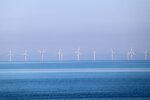06/28/2010
Italy - Change in public incentives for renewable-energy investment brings financing to a halt
A change in Italy’s public incentives for renewable-energy investment has brought financing for the sector to a halt, hitting aspiring players in the green economy. A decree packed into Italy’s austerity budget relieves the state-run energy management agency, known as GSE, from its role as the buyer of last resort for so-called green certificates issued to support development of cleaner energy production. The measure responds to the Italian energy regulator’s ruling that the certificates—which some say invited abuse by speculators with no industry credentials—risked pushing up prices for consumers, whose utility bills reflect the higher costs of producing clean energy.
Even though the decree introducing the change still has to be approved by parliament, prices have collapsed in the €7.5 billion ($9.2 billion) green-certificates market. The Italian green-certificates plan costs the government about €500 million a year. Scrapping it will basically knock effective tariffs for wind energy down to below €120 for each megawatt hour from the previous floor price of €180, HSBC’s Robert Clover said. Some wind-farm projects may fail and fewer new projects will come on line, he said. Moreover, new financing for renewable-energy projects has been “totally blocked,” said Alberto Malagodi, chief executive of Veronagest, which invests in wind farms.
The move comes as the fiscal crisis around Europe has raised pressure on the renewable-energy sector. Spain, Italy, Czech Republic and Slovakia are the most “at risk” for the withdrawal of renewable-energy support mechanisms, HSBC analysts said in a global report on carbon policies released Monday. Italy’s green certificates have been used as a key collateral component in obtaining financing for new wind and solar parks, enabling project-financing deals used in most Italian renewable-energy development projects in the past two years, said Pietro Colucci, chairman and CEO of Kinexia, a financial holding company focusing on clean energy to diversify from its traditional cosmetics and perfume business.
The decision to relieve GSE of its role in the green-certificate market created a “confidence crisis,” Mr. Colucci said. “Amazingly, Italy has managed in only 18 months to take a sector that is booming around the world and turn it into a sector at risk here,” he said. Renewable-energy executives were up in arms at a conference Tuesday in Rome. Unstable official policy, they warned, would deter investment and scrap Italy’s hopes of catching up with Germany and Spain in clean energy. Italy introduced green certificates more than a decade ago. After it began to set minimum targets for renewable-energy production in 2002, the government used them as a key component of its public support for green-economy initiatives.
Companies can either boost their clean-energy production or buy the certificates. The country is bound by a European Union agreement to raise renewable energy’s share of total energy inputs to 20% by 2020. The sector has been booming, with about €6.5 billion in investments made to add more than 4,000 megawatts of installed capacity in Italy in the past two years. Most of the green certificates appear to be in the hands of foreign banks, which own an estimated €5 billion, or two-thirds, of all outstanding green certificates, according to AIBE, the Association of Foreign Banks in Italy.
Established larger industry players, most of which have cash flow from core fossil-fuel businesses and easier access to capital markets, stand to be less affected, but even they are perplexed by the sudden stop of the certificates market. “A more gradual transition from green certificates to a better scheme may prove better,” said Francesco Starace, CEO of Enel Green Power, the renewables unit that Enel SpA intends to spin off later this year in an initial public offering expected to value the company at €12 billion. Subsidy or incentive schemes should be devised with an eye to how easy it is to end them eventually, Mr. Starace said, adding that phasing out tariffs or tax incentives is easier than phasing out green certificates.
Indeed, one of the problems with the green certificates is that, almost like securitized U.S. subprime mortgage bonds, they took on a financial life of their own. “In Italy, so far, incentives seem to have helped developers” rather than steering energy production styles, distribution or sales, said Alessandro Garrone, CEO of ERG SpA. Moreover, many of the developers aren’t actually building their planned wind projects, said Stefano Conti, head of institutional affairs at Terna SpA.
For more information please contact Trevor Sievert at ts@windfair.net
Even though the decree introducing the change still has to be approved by parliament, prices have collapsed in the €7.5 billion ($9.2 billion) green-certificates market. The Italian green-certificates plan costs the government about €500 million a year. Scrapping it will basically knock effective tariffs for wind energy down to below €120 for each megawatt hour from the previous floor price of €180, HSBC’s Robert Clover said. Some wind-farm projects may fail and fewer new projects will come on line, he said. Moreover, new financing for renewable-energy projects has been “totally blocked,” said Alberto Malagodi, chief executive of Veronagest, which invests in wind farms.
The move comes as the fiscal crisis around Europe has raised pressure on the renewable-energy sector. Spain, Italy, Czech Republic and Slovakia are the most “at risk” for the withdrawal of renewable-energy support mechanisms, HSBC analysts said in a global report on carbon policies released Monday. Italy’s green certificates have been used as a key collateral component in obtaining financing for new wind and solar parks, enabling project-financing deals used in most Italian renewable-energy development projects in the past two years, said Pietro Colucci, chairman and CEO of Kinexia, a financial holding company focusing on clean energy to diversify from its traditional cosmetics and perfume business.
The decision to relieve GSE of its role in the green-certificate market created a “confidence crisis,” Mr. Colucci said. “Amazingly, Italy has managed in only 18 months to take a sector that is booming around the world and turn it into a sector at risk here,” he said. Renewable-energy executives were up in arms at a conference Tuesday in Rome. Unstable official policy, they warned, would deter investment and scrap Italy’s hopes of catching up with Germany and Spain in clean energy. Italy introduced green certificates more than a decade ago. After it began to set minimum targets for renewable-energy production in 2002, the government used them as a key component of its public support for green-economy initiatives.
Companies can either boost their clean-energy production or buy the certificates. The country is bound by a European Union agreement to raise renewable energy’s share of total energy inputs to 20% by 2020. The sector has been booming, with about €6.5 billion in investments made to add more than 4,000 megawatts of installed capacity in Italy in the past two years. Most of the green certificates appear to be in the hands of foreign banks, which own an estimated €5 billion, or two-thirds, of all outstanding green certificates, according to AIBE, the Association of Foreign Banks in Italy.
Established larger industry players, most of which have cash flow from core fossil-fuel businesses and easier access to capital markets, stand to be less affected, but even they are perplexed by the sudden stop of the certificates market. “A more gradual transition from green certificates to a better scheme may prove better,” said Francesco Starace, CEO of Enel Green Power, the renewables unit that Enel SpA intends to spin off later this year in an initial public offering expected to value the company at €12 billion. Subsidy or incentive schemes should be devised with an eye to how easy it is to end them eventually, Mr. Starace said, adding that phasing out tariffs or tax incentives is easier than phasing out green certificates.
Indeed, one of the problems with the green certificates is that, almost like securitized U.S. subprime mortgage bonds, they took on a financial life of their own. “In Italy, so far, incentives seem to have helped developers” rather than steering energy production styles, distribution or sales, said Alessandro Garrone, CEO of ERG SpA. Moreover, many of the developers aren’t actually building their planned wind projects, said Stefano Conti, head of institutional affairs at Terna SpA.
For more information please contact Trevor Sievert at ts@windfair.net
- Source:
- Online Editorial, www.windfair.net
- Author:
- Posted by Trevor Sievert, Online Editorial Journalist
- Email:
- ts@windfair.net
- Link:
- www.windfair.net/...
- Keywords:
- Wind energy, wind power, wind turbine, wind mill, offshore, onshore, wind farm, renewable energy


























